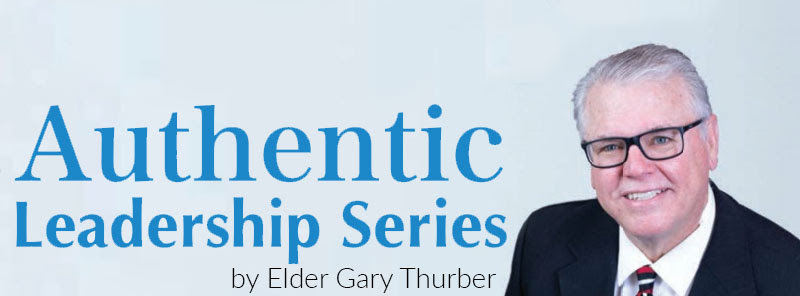How to become an authentic Chistian leader is, I believe, in the heart of each person reading this article. For some of you, it might not have dawned on you that you are indeed a leader! Whether it is at work where team members depend on you, or in the family circle, or as part of a team taking a troop of Pathfinders to Gillette, Wyoming, you are a leader!
In previous articles, I focused on the first two requirements for authentic leadership: self-awareness and transparency. In this article, I want to write about the third tenet of authentic leadership: healthy processes.
Have you ever stood in line at the DMV and said to yourself, “There has got to be a better way to get this done!” We can see quite easily whether or not processes are being handled efficiently. When processes are not being handled well, much stress can come to both the provider and consumer.
Sadly, it is often people who have no control over the process who end up dealing with the frustration and anger that come from the consumer. I was in the Madison, Wisconsin, airport one day waiting to board my flight to Chicago. Suddenly, without any explanation given, the gate agent announced our flight had been canceled. I watched as this poor lady worked with one abusive passenger after another trying to help rearrange their travel plans. The line of disgruntled travelers was long, and the frustration was getting worse by the minute. I thought to myself, “Something is broken in their process for helping stranded passengers.”
Pillar #3
Having healthy operating processes is essential both when things are going smoothly and during times of crises. An authentic leader must always own the need for good, thoughtful processes. To have healthy processes takes time and strategic planning. Good processes rarely happen by accident; they only come through thoughtful and collegial planning.
In addition, a healthy process in the way volunteers or employees are dealt with is essential as well. Making sure your people are informed and cared for is a must. If your volunteers or employees are not taken care of, it is more likely your endeavor will run into great difficulty or even fail.
And of course a healthy process for initially finding your volunteers or employees is extremely importnat. Getting the wrong person on your team can be devastating to the overall health of your workforce and your ability to align your values and mission along the way.
In the end, healthy processes come about by having a thoughtful way to make decisions. Here are some reliable steps for making decisions you might find useful in your ministry endeavors.
- Recognize and name the challenges you are facing. Spend time articulating your needs and how they relate to your mission.
- Gather all the data you need for making an informed decision. This is true whether you are talking about a particular function that needs to be more efficient or a personnel decision.
- Put together a list of all your options. This includes even options you know are bad ones. Sometimes compiling a list of every permutation you can think of is a healthy things to do.
- Consider each option very carefully. Identify your goals, then make sure you understand and prioritize your workplace values. Think about feasibility, acceptability and sustainability.
- Finally, make your decision. The worst decision you could make is no decision. A leader must be willing to take appropriate action.
- As the process moves forward, be flexible. You will always have a few curve balls thrown your way so be ready to adjust.
Healthy processes can bless everyone. They bless the leader, the team, and especially those whom you are serving. Mission happens at its best when good processes are in place.
I truly marvel at all the tremendous ministry taking place in Mid-America territory, including the many ministries at our schools, churches, camps and institutions. It is a joy to see the leadership at each of these places working to fulfill our mission to help prepare people for Christ’s soon return.
In the last installment about authentic leadership, we will look at including a moral perspective in all we do as leaders.







